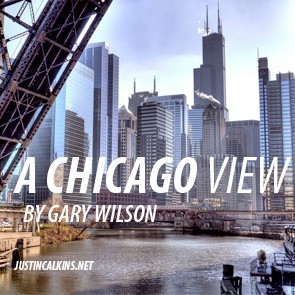
Gary Wilson
Commentary
Who leads for the Great Lakes?
Who is that singular, credible, truth-telling executive who could oversee and guide the efforts of the disparate agencies, councils, initiatives, coalitions and task forces that have existed for decades?
We need someone who can reign in a management structure that reminds me of Winston Churchill’s famous description of Russia — “it’s a riddle, wrapped in a mystery, inside an enigma.”
Who could be that person responsible to make sure the lakes are sustained and on track to provide clean drinking water and healthy recreation for generations to come? We need a leader who would tell the truth to business and industry when it stalls, and who doesn’t use the faux job creation excuse as a reason to skirt environmental responsibility.
We need someone who could focus the researchers on what’s really important and properly prioritize federal spending. We need a leader who would call out federal agencies when they do unjustified pet restoration projects at the expense of needed work.
Sadly the answer to the perennial who is in charge question remains the same: It’s everyone and no one and the region seems to have given up and accepted the bureaucratic status quo.
What’s the remedy?
If I could wave a wand and appoint someone to be CEO of the Great Lakes it would be Milwaukee Mayor Tom Barrett.
What qualifies him as mayor of a small, big city to guide the work to protect one of the greatest natural resources on Earth?
It’s not complex. He’s knowledgeable, speaks the truth and is committed.
He is the immediate past-chair of the bi-national mayor’s group the Great Lakes and St. Lawrence Cities Initiative; while nice, it’s mostly a credential.
But a recent speech he gave to the 
- He told the Cleveland executives how he was able to clean up Milwaukee’s beaches and said Cleveland can do it too. But Cleveland’s elected officials have to make beaches a priority and have the political will to act.
- He called out Illinois politicians saying that the answer to the Asian carp advance is physical separation of Lake Michigan from the Mississippi River, but that won’t happen if Illinois’ political leadership doesn’t embrace and call for separation.
- He chronicled how Milwaukee under his leadership walked away from millions of dollars of revenue to be gained from Waukesha’s Great Lakes diversion request because he believes it violates the regional agreement covering diversions.
Barrett also praised Milwaukee’s business community for its nascent efforts to make the city a water technology hub but gently tweaked it implying that results are more important than press releases.
And in perhaps his “Pure Michigan” moment, Barrett made the case for the region to cast off its Rust Belt legacy by branding itself as the “Fresh Coast.”
It’s an honest description, Barrett said, and it doesn’t require spin-doctoring by a marketing department. It’s who we are and we can look at a map for proof.
And he passes out the advice and tough love without lecturing or bragging so it can be heard by reasonable people.
Big city mayors have a plate full of issues to deal with, including crime, poverty, education and housing problems. Barrett acknowledged that Milwaukee is grappling with all of them.
So why embrace the Great Lakes? Aren’t they the federal government or the governor’s responsibility? No, Barrett would say, they’re the responsibility of all of us.
And how and why did Barrett get his depth of knowledge of Great Lakes issues?
It’s obvious that he can articulate well beyond staff-prepared talking points.
“He actually studies Great Lakes issues,” says Jim Rowen, who writes a popular political and environmental Wisconsin blog and was chief of staff for Barrett’s predecessor.
Back to reality

Milwaukee mayor Tom Barrett. Photo: Facebook
Barrett or anyone like him isn’t going to be appointed to lead the vast Great Lakes bureaucracy. His “Fresh Coast” branding -while on target – isn’t likely to be widely embraced by the eight Great Lake states.
The states like to talk about regional collaboration but self-interest still takes precedent. Illinois’ and Chicago’s blind eye to how the balance of the region sees the Asian carp problem is an example.
So the regional and federal agencies will muddle along in dealing with the multitude of Great Lakes issues. Incremental progress will be made by smart, hardworking people who are saddled with a complex bureaucracy and have succumbed to it.
But if they’re looking for a source of inspiration and a license to move past overused talking points, they should pay attention to the words and deeds of Barrett.
Heck, the guy turned down millions of dollars for Milwaukee to protect the integrity of the Great Lakes Compact, an agreement many of the folks in responsible positions fought for. How many of us would do that?
The broad Great Lakes community gathers in Milwaukee in September for the annual Great Lakes Week confab. Attendees include many of the folks who work hard in the agencies, councils, commissions and coalitions I’ve referred here.
If you see Barrett, tell him you appreciate his dedication, candor and honesty. He’s accessible. I ran into him once at an event and we talked for 10 minutes which is probably more time than I deserved.
Thank him because the Great Lakes need more leaders like him.
